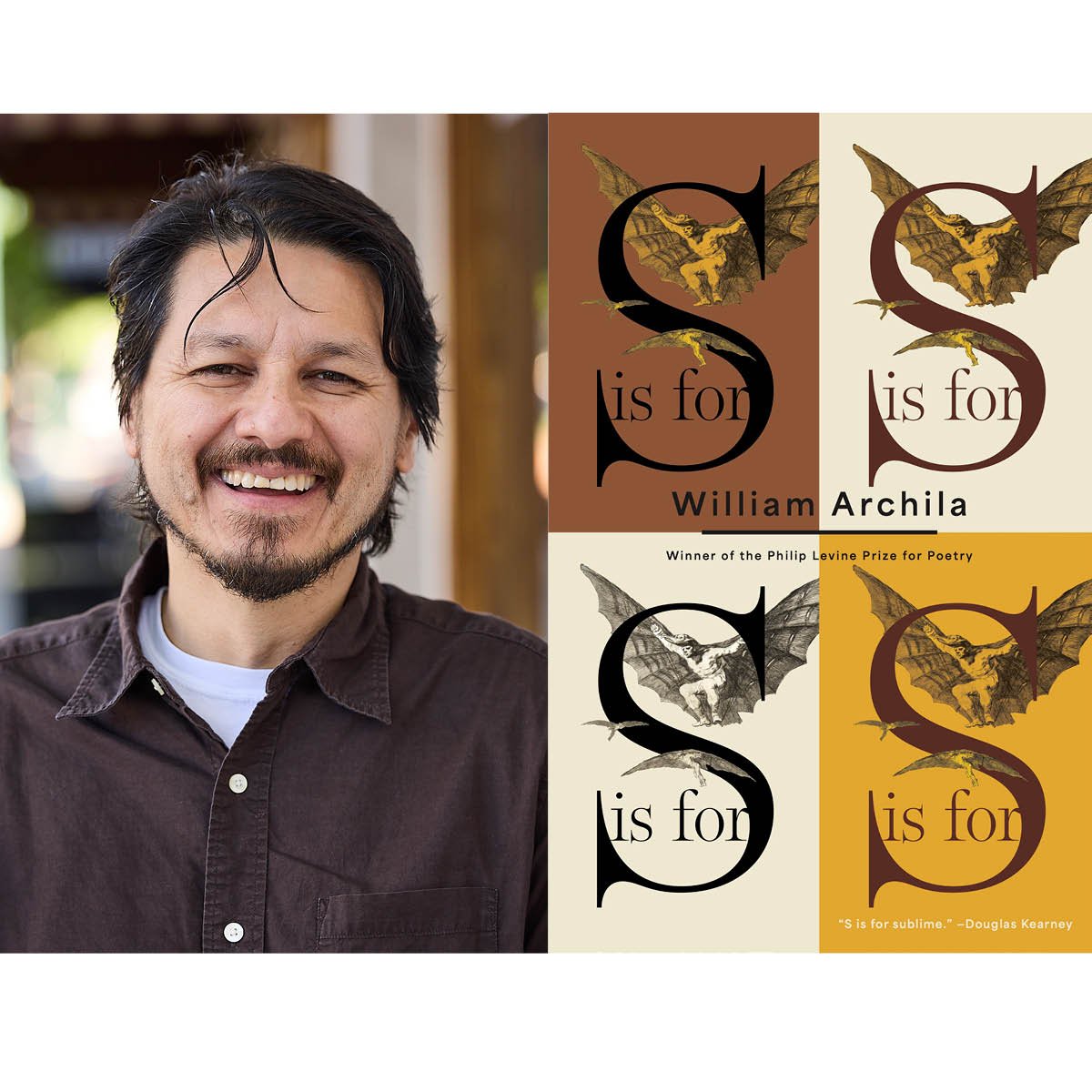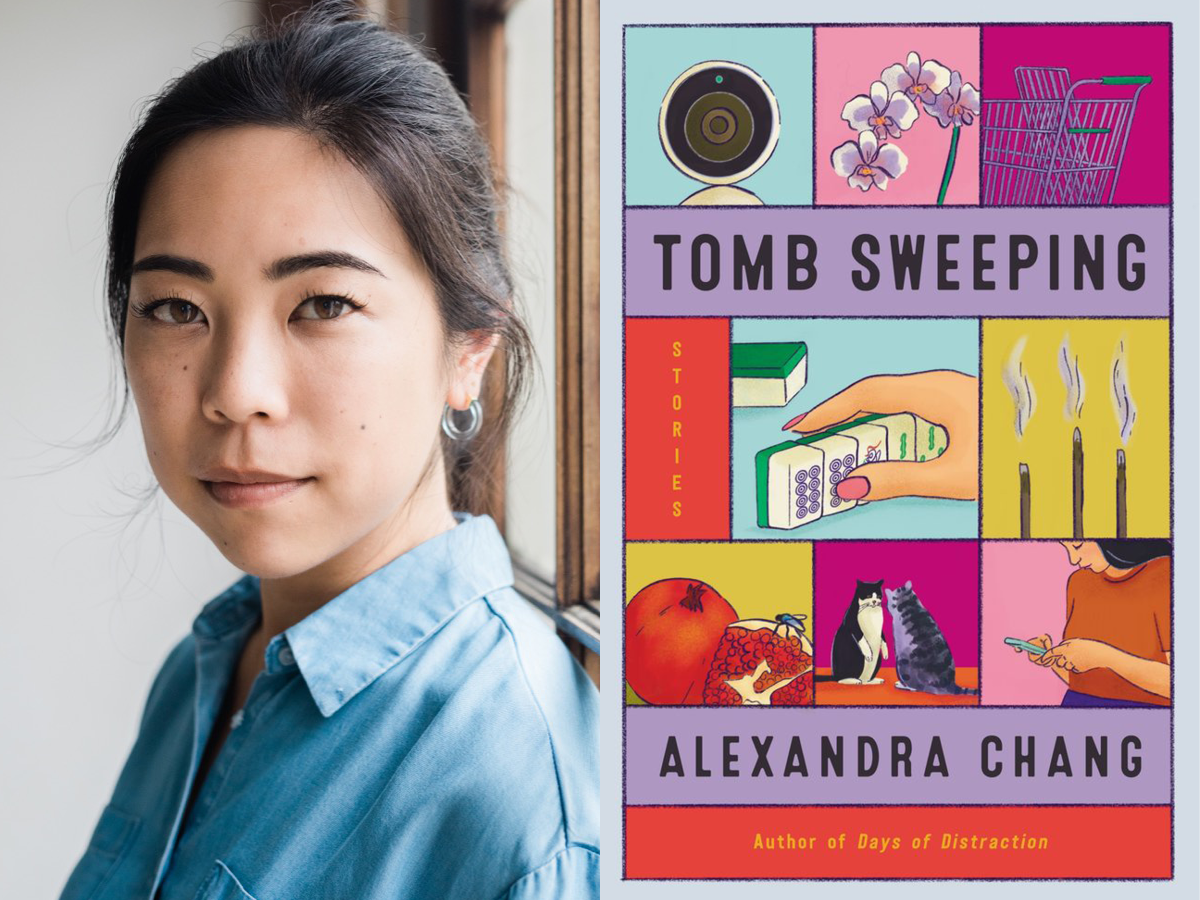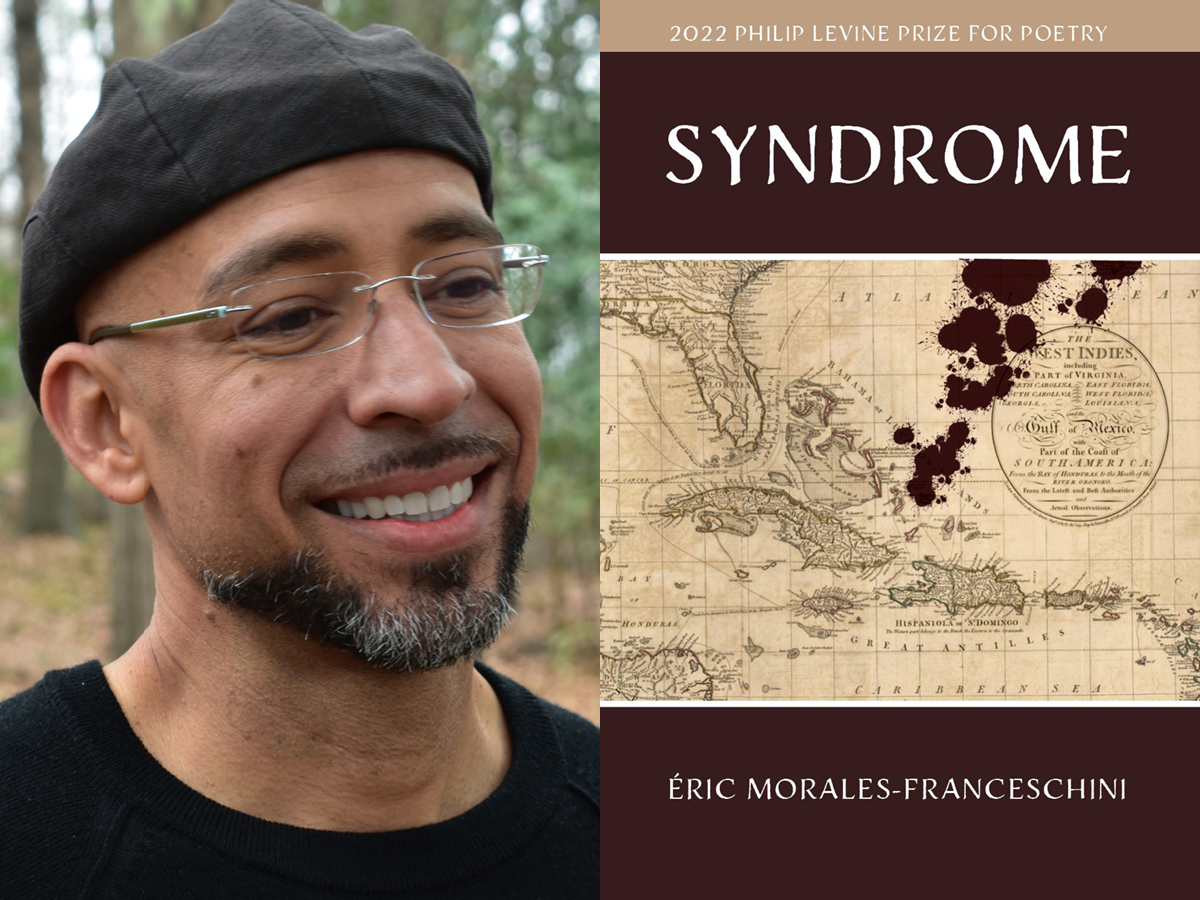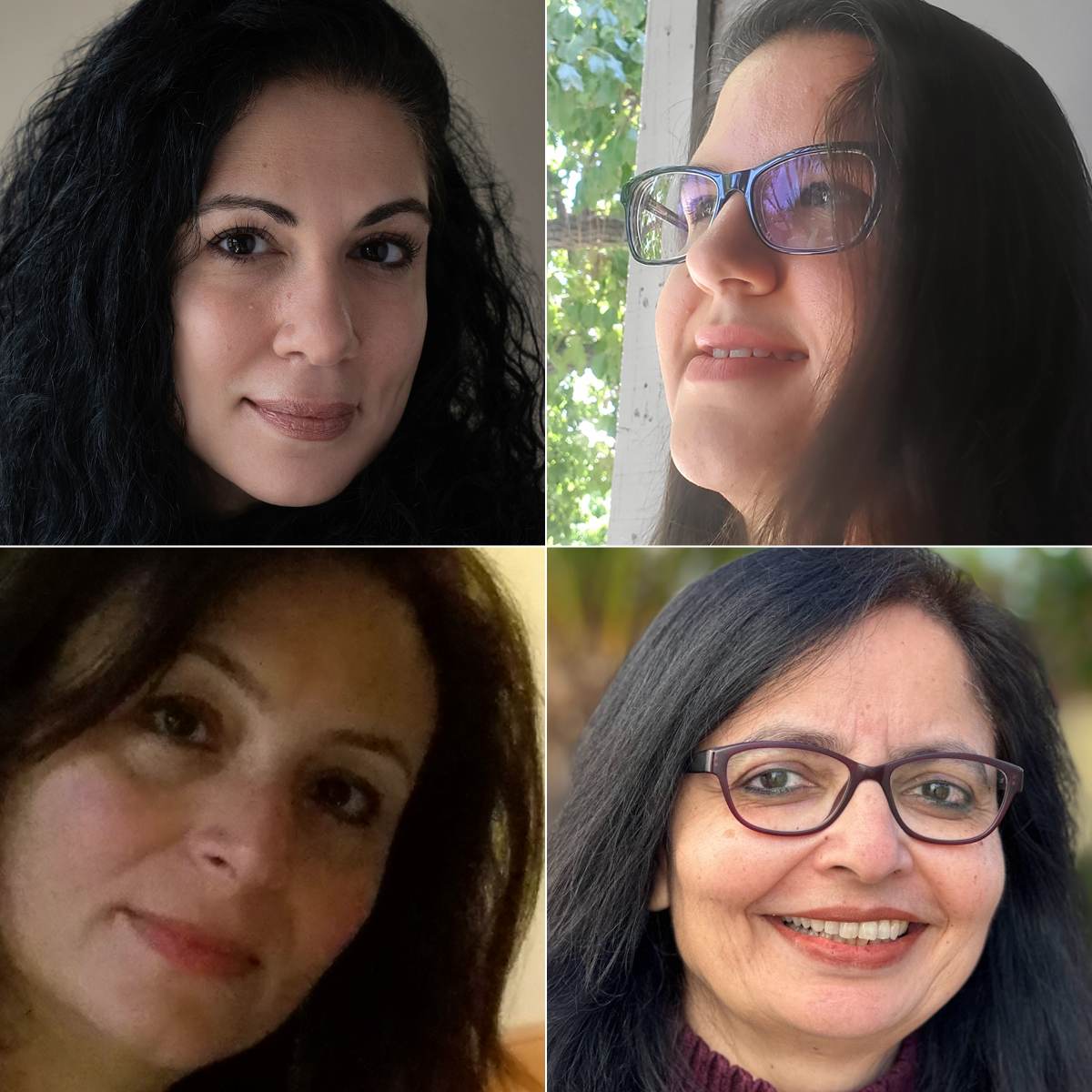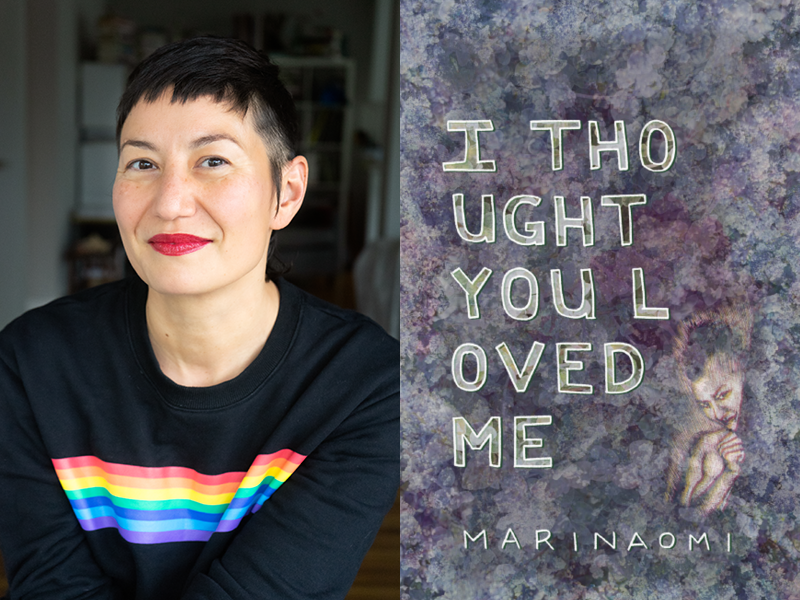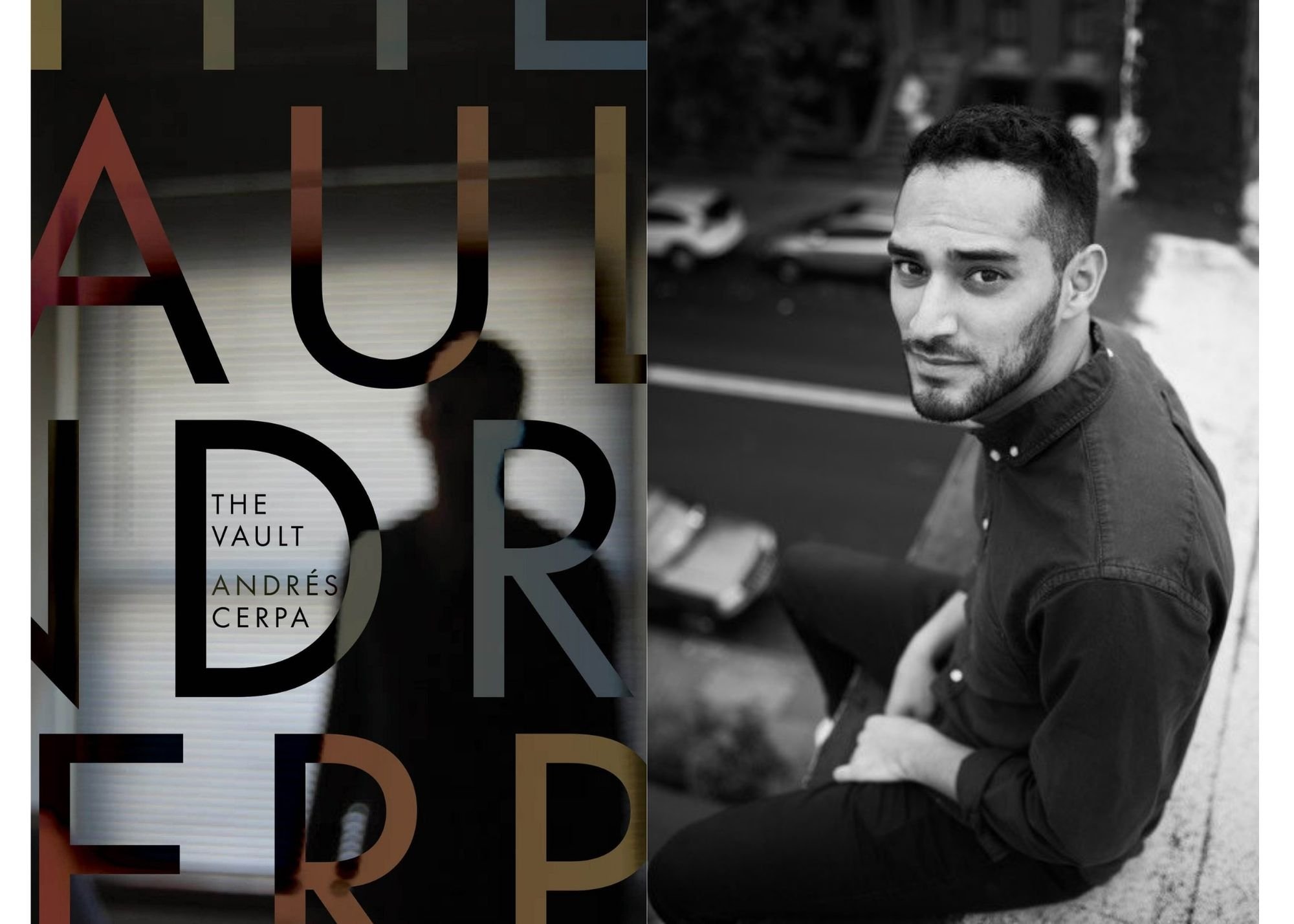[T]he argument I’m making in the book is that by resisting the narrative of inevitability offered by Big Tech companies and their CEOs and investors, we might open ourselves up to other possibilities — maybe possibilities we haven’t even imagined yet…
Read MoreA Normal Interview with Trinity Nguyen by Hope Vang
Trinity Nguyen’s debut novel, A Bánh Mì for Two, is a queer YA romance novel that celebrates sapphic love, family relationships, and friendships while also exploring the history, language, and culture of Vietnam. Suffering from writer’s block from her food blog, Lan, a Saigon native, agrees to help Vivi, a Vietnamese-American student on a study abroad trip, uncover Vivi’s mother’s hidden past in exchange for a food tour that will hopefully reignite Lan’s love of writing. As they explore Saigon together, rekindling old memories and making new ones, their friendship blossoms into something stronger as they also find a sense of belonging with each other.
In an email interview, Nguyen and I discuss the theme of secrecy that connects Vivi and Lan to the mysteries of their families’ pasts and draws them even closer to each other, as well as the research Nguyen conducted to capture Saigon’s bustling and romantic atmosphere.
Hope Vang: In your book, there are a lot of interesting parallels between the mother-daughter relationships. What was your inspiration behind creating these layered relationships?
Trinity Nguyen: I wanted to portray the relationships between Vietnamese daughters and their mothers. Vivi and Lan’s relationships with their respective mothers are very different yet also similar. I wanted to write and portray relationships stemming from inherited grief, and the different ways daughters and mothers cope or react to that grief. In the beginning, the two main characters are foils of each other; Vivi hungers for her mother’s past while Lan readily accepts her current situation. By the end of the book, they realize they have a lot more in common than not.
Vang: Whether it is the physical loss of a loved one, the loss of cultural connection to the motherland, or the loss of a home due to war, how has grief or loss in Vietnamese or Asian/Asian-American cultures impacted the way you characterized Lan and Vivi?
Nguyen: I think grief and loss were natural themes that emerged as I wrote. Since the American War in Vietnam is such a recent event, it touches every aspect of my characters and their story. In a sense, I couldn’t have written a novel about a Vietnamese American girl going to Vietnam without exploring the diasporic grief and these complex feelings related to home and belonging. For Vivi, she was easier to characterize because her experience is nearest to mine (and other Asian Americans I know). I wanted Vivi to feel that intense connection to the home that she’s ethnically related to but has never been to. For Lan, she is experiencing a multitude of different losses as well: her father, the passing of time and her own childhood, and the bone-deep generational loss since the war. Though these two characters come from different experiences, they connect through shared grief and loss.
Vang: Another theme you weave throughout the novel is the idea that some things are kept a secret for a reason. I thought it was a beautiful way to include not only the personal experiences of Lan, Vivi, their mothers, and even Lan’s cousin Triet, but also a touching ode to the Vietnamese communities in Vietnam and in the diaspora. Everyone in your novel has their own story that is meant not to be shared. How does secrecy tie in with the complexity of storytelling?
Nguyen: I love this question! It was difficult at first to not be too eager and over-explain myself. I felt very protective of the characters (especially the mothers) and had to hold myself back from defending them. I’m aware of how bratty Vivi may come off at first, as well as how some readers may find Vivi’s mother’s attitude perplexing—but I had to give the characters their time to learn, and not “tell” them how to feel. In the same vein, I don’t want to overtly tell readers how to feel—I want them to read these characters’ stories and decide for themselves.
Vang: As writers, how can we benefit from secrecy?
Nguyen: This is something I’ve been trying to navigate as well! As a debut author, I wanted to describe everything. Now, I want to trust that readers can make their own connections. Also, as an author, I’ve realized I can’t tell everyone’s story–and sometimes, I simply don’t have the right to.
Vang: I loved how you included blogging/food-stagramming and fangirl character in your novel. What inspirations led you to consider this for your novel?
Nguyen: In high school, my friends and I ran a foodstagram together for a brief time before we went off to college. I loved sharing meals (and gossip) with my favorite people, and I wanted to write those feelings into a book. Additionally, I’ve been a fangirl my entire life, browsing and running stan accounts on Tumblr, and Twitter (I refuse to call it X), and writing fanfiction. I love characters with an intense passion for their hobbies/interests.
Vang: What research did you conduct to write about your book? What was surprising to learn about Vietnam or Little Saigon—about the cities, the people, or the food?
Nguyen: I read a lot of Vietnamese American fiction to see how other authors convey all these complex diasporic feelings. But I actually talked to family and friends in Vietnam more (going straight to the primary source) to really develop Lan’s character and story. I learned a lot about the food! Before writing the book, I had this preconceived notion that all these dishes have always existed. I was so surprised to learn how recent some of these fusion dishes are, and the ways they changed Vietnamese culture.
Vang: As much as food is an important part of the worldbuilding in the story, you also do an incredible job of illustrating the city skyline of Saigon and focusing on looking up at the stars. Why did you choose to integrate the landscape into your story?
Nguyen: I love stories where cities feel as alive as characters! Ho Chi Minh City/Saigon is one of the biggest cities I’ve ever lived in and no other cities I’ve been to have ever held up to it. The city also has this unexplainable electric undercurrent running through it, and I hope I have captured that vibrant feeling of being there throughout the book.
Vang: What inspired you to write a sapphic story between two Vietnamese girls?
Nguyen: I will say this was 100% indulgent. The only other sapphic Viet stories I can think of are from Aliette de Bodard, Nghi Vo, CB Lee, and Trang Thanh Tran (also my inspirations). We need more.
Vang: I loved the pining and yearning between Lan and Vivi. Their love for each other felt so natural, growing out of curiosity and becoming inseparable from the city of Saigon while also learning more about themselves from each other. What is your advice on writing a believable romance?
Nguyen: Know your characters! It’s so much easier to write relationships when you understand the characters you are writing. I like to approach writing romance by listing out what my character lacks and how the other person can help them through it. It’s true for real life too, we seek partners that complement us. Also, I find it a lot more fun to write characters with opposing or different perspectives…then finding out they’re so much more alike.
Vang: How can writers ensure they’re conveying healthy relationships to young adults?
Nguyen: This may be controversial, but I don’t believe in always writing happily-ever-afters in young adult books. Coming of age is such an important moment, and I want to be careful about how we portray love and happiness. It’s important to make sure your characters go through their own complex journey and develop their own arc and not make them wholly dependent on the love interest. YA is one of the most impactful genres, and I believe we owe it to young people to have authentic (and realistic) relationships.
Vang: I discovered your book on TikTok long before your book was announced for publication. How has TikTok or social media impacted your experiences as a debut author?
Nguyen: I credit social media for allowing so many readers to find me! When I sold the book, I had lots of doubt about being able to reach the right audience, but thankfully, so many queer Asians have shown me unwavering support—and for that, I’m so thankful. It’s been amazing seeing the data analytics part of social media (I work in marketing analytics for my day job, hah) and knowing that many readers are from cities with heavy Vietnamese populations (Houston, San Jose, and Garden Grove). On the flip side, though, I was grappling with how I was commodifying myself and my story—packaging it into two sentences for the For You Feed in hopes of grabbing people’s attention—and had to reflect on what ‘success’ as a debut author means.
Vang: What are you hoping to explore in any future works or projects?
Nguyen: While I think I’ll always come back to YA, I do want to explore bigger themes that reflect the current sociopolitical climate. I hope to write (and learn) more about young adults navigating their intersectional identities—whether that be diasporic or queer identity—and how they are reacting to this changing world. Fiction informs reality (and vice versa), and I wholeheartedly believe there are lessons to be learned even in sub-genres such as romance or comedy.
Trinity Nguyen is a Vietnamese American author and graduate of Franklin & Marshall College. She was born in Viet Nam and raised in Little Saigon, California, and learned English by reading too many young adult novels and never turning off closed captioning. Her debut novel, A BANH MI FOR TWO, is a national independent bookstore bestseller and a 2024 Goodreads Choice Award Nominee. Trinity currently lives in Los Angeles with her cats and the succulents from her mom’s garden.
Hope Vang is a Hmong American master’s student studying English Literature at Fresno State. Her research interests include children’s literature, Gothic literature, Asian/Asian-American literature, and mother-daughter relationships.
Trinity Nguyen author photo by Jonathan Montero
A Normal Interview with William Archila by Angelina Leaños
This is the great thing about immersing myself in the world I am creating in my work. The tropes, concepts, the culture and history, the places and characters, they all come together.
Read MoreA Normal Interview with Alexandra Chang by Phoua Lee
I’m not interested in likability with characters. I am drawn to characters who are complex, contradictory, and very particular in the ways that they might exist in the world, and that they are capable of holding contradictory views. That is how I see people.
Read MoreA Normal Interview with Éric Morales-Franceschini by Victoria Monsivaiz
My poetry is indeed heavily indebted to my studies in history, psychoanalysis, political economy, and critical social theory; but I find that, at times, only via poetry can I adequately express the gravity and intricacy of not just a given fact, but what I should (like to) do in light of that fact.
Read MoreThe Velvet Air of Gaza: A Conversation with Three Palestinian Writers
I still think it is essential to at least sometimes focus on aspects of Palestinian culture and heritage outside of the conflict with Zionists. Doing this shows that we are not only defined by the current suffering and brutality; it is definitely part of the Palestinian experience, but it is not all of it.
Read MoreA Normal Interview with Myriam Gurba by Monique Quintana
A Gothic style is ideal for narrating the conquest of the West because it’s a horror story that continues to unfold. Horror tropes that have their roots in the Gothic are ideal mechanisms for that type of narrative.
Read MoreA Normal Interview with Ghassan Zeineddine by Lena Mubsutina
I have always loved creating different kinds of characters from various generations, genders, sexual orientations, and socioeconomic classes. I think it’s just a matter of doing those characters justice and treating them with empathy and compassion.
Read MoreA Normal Interview with Béatrice Szymkowiak by sami h. tripp
"I think art holds the power to shift and multiply perspectives, which the world desperately needs right now. Single-mindedness is dangerous. What I love about poetry in particular, is its capacity of subversion, of dissent, against ideas but also against language itself, as language and ideas are intertwined."
Read MoreA Normal Interview with Allegra Hyde by Mialise Carney
I think artists and writers are really important in terms of addressing the climate crisis. Everybody, ultimately, is important—it’s an all hands on deck kind of situation—but artists and writers have the ability to make sense of a problem that otherwise seems vast and intangible.
Read MoreA Normal Interview with KB Brookins by James O’Bannon
Rage is a thing that has to be birthed, because we do so much course correction – or at least my experience has felt like, at multiple times, someone has done something anti-Black to me, someone has done something racist, homophobic, transphobic, and I feel, in that moment, I can’t react the way that I want to.
Read MoreA Normal Interview with Maya Pindyck by Caleigh Camara
"I think we grapple with those stories we cannot reconcile by writing them again and again, maybe each time with different 'others' in mind, and for a future people we hope to touch."
Read MoreA Normal Interview with MariNaomi by Lee Lee
My first pieces were our letters and notes to each other, our photographs, and the boxes full of journals I read through, one by one. Once I put it all together, it felt significant. As I collected them, it felt like a scavenger hunt.
Read MoreA Normal Interview with Will Betke-Brunswick by Sydney Allison Hinton
"People expect mammals to smile and frown, to have expressive eyebrows, and to make certain gestures with their hands, arms, and front legs. Drawing flightless birds frees me from so many expectations and gives me more space to play."
Read MoreA Normal Interview with Katie Ives By Rosie Bates
Climbing can be an enticing pursuit for writing because a climb is a natural story… Basically, anytime you go on a climb, even if it’s just a backyard climb, you’re tracing a narrative or the form of a narrative arc with your hands and your feet.
Read MoreA Normal Interview with Talia Lakshmi Kolluri by Samina Najmi
I have always come to both reading and writing from a somewhat genderless space. What I mean is that both writing and reading have been mechanisms for me to try on different lives and experiences.
Read MoreA Normal Interview with Manuel Muñoz by Manuel Farias
"What we think is a really small, isolated place turns out to be the center of somebody else’s world."
Read MoreA Normal Interview with Andrés Cerpa by Rebeca Abidail Flores
Constructing the book is a device for me as a writer to enter it more fully. I like to drop myself in. If I’m there mid-sentence, mid-story, if everything is kind of jumbled, then maybe I can catch the momentum that I had previously and continue on riffing.
Read MoreA Normal Interview with Jubi Arriola-Headley by Arielle K. Jones
Kink has a more expansive meaning. … Kink as just that, sexual kinkiness. Kink as, the kink in Black folks’ hair. Kink as, a kink in the system. Kink as in, broke. So, I play off all the different ways that kink is a thing that we think about.
Read MoreA Normal Interview with Monica Sok by Mariah Bosch
I write down dreams as they tell themselves to me. I write down as much as I can remember, trying to get the details and the order of events right––not interpreting them but documenting them. But I think there’s a little bit of freedom in figuring out how a dream takes shape on the page.
Read More


